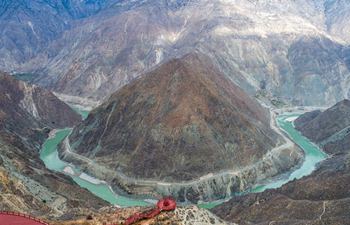GENEVA, March 23 (Xinhua) -- "Now more than ever, we need to be weather-ready, climate-smart and water-wise," warned Petteri Taalas, secretary-general of World Meteorological Organization (WMO), on Friday to mark the World Meteorological Day.
As the theme of this year's event, "Weather-Ready, Climate-Smart" highlights the need for informed planning for day-to-day weather and hazards like floods as well as for naturally occurring climate variability and long-term climate change.
"This is because the ever-growing global population faces a wide range of hazards, such as tropical cyclone storm surges, heavy rains, heatwaves, droughts and many more," the WMO head said.
"Long-term climate change is increasing the intensity and frequency of extreme weather and climate events and causing sea level rise and ocean acidification. Urbanization and the spread of megacities means that more of us are exposed and vulnerable."
According to WMO, the start of 2018 has continued with extreme weather where 2017 left off, which has claimed lives and destroyed livelihoods. As confirmed in WMO Annual Statement on the State of the Global Climate, 2017 was one of the three warmest years on record, and also the warmest year without an El Nino.
"The Arctic experienced unusually high temperatures, whilst densely populated areas in the northern hemisphere were gripped by bitter cold and damaging winter storms. Parts of Australia and Argentina suffered extreme heatwaves, whilst drought continues in Somalia and the South African city of Cape Town struggles with acute water shortages," Taalas said of the loss in 2017.
To create climate-smart societies, the WMO has called for developing climate services and increasing the number of professionals and students trained in meteorology and climatology. It aims to restructure science curricula to align with current and future needs in developing and emerging countries, and to develop more effective communication channels so that decision-makers, like farmers, health, water and other professionals, and politicians, receive the climate services they need.
Meanwhile, the WMO underlines the importance of data on all water resources in easing the ever-rising water stress, like both floods and droughts. Updated and sufficient data would increase the preparedness for floods, while compounding factors, such as lack of rainfall, poverty and inappropriate land use, increase vulnerability to drought.

















